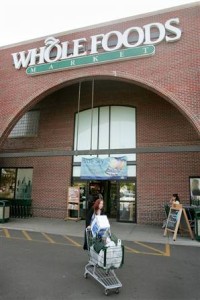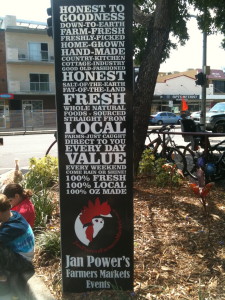Sam Wood of Philly.com writes that shoppers once chose supermarkets for convenience, cost, customer service and quick checkouts.
 But a recent study found 83 percent of consumers pick only retail outlets that look clean to them, according to supermarket guru Phil Lempert. A full third of the people he surveyed have turned around and fled stores that seemed less than pristine.
But a recent study found 83 percent of consumers pick only retail outlets that look clean to them, according to supermarket guru Phil Lempert. A full third of the people he surveyed have turned around and fled stores that seemed less than pristine.
The Inquirer, as part of its Clean Plates project, examined two years of health department reports for large grocers in Philadelphia and Bucks County.
And though each inspection is said to be only “a snapshot in time,” some chains are more photogenic than others.
At the top of the list for cleanliness were Wegman’s and Aldi, each with near immaculate records and very few violations per inspection.
At the bottom were Shop N Bag, Fresh Grocer, and, perhaps surprisingly given its reputation for high prices, Whole Foods. Each of the chains had at least four times as many infractions (noted per inspection) as Wegman’s.
To determine the rankings, we added up the number of infractions found by the health departments and divided that by the number of inspections.
Wegman’s averaged 1.8 violations per inspection while Shop N Bag topped out at 10.
In general, most violations were corrected on the spot before the inspector left the store and the transgressions were minor, ranging from insufficient hot water to missing thermometers in refrigerated cases. Evidence of mice, both dead and alive, was also a commonly cited problem.
At Whole Foods in the city’s Fairmount section, inspectors in January found mouse droppings throughout the rear storage area. Food samples were being offered without the protection of a sneeze guard covering the food, as required. At the South Street branch last week several food items were found to be improperly refrigerated and a dead mouse was discovered in a trap in a bakery cabinet. Two more expired rodents were found in snap traps there in late November.
 A spokeswoman said mice were more likely to be attracted to Whole Foods because the markets carry more prepared foods and fresh perishable items than others. Just as customers are drawn to those specialty items, mice are lured by the increased trash and compost created as a byproduct.
A spokeswoman said mice were more likely to be attracted to Whole Foods because the markets carry more prepared foods and fresh perishable items than others. Just as customers are drawn to those specialty items, mice are lured by the increased trash and compost created as a byproduct.
“Whenever issues are discovered, like those in Philadelphia, we take immediate action to fix the situation and provide our customers with the service and quality they expect,” said Whole Foods spokeswoman Robin Rehfield Kelly.
“Making food safe costs money,” said Donald W. Schaffner, food safety expert and a professor of microbiology at Rutgers University. “If you’re an upscale chain, you know your customers demand it. It comes through diligence and staffing.”
Schaffner said he wasn’t surprised that Wegman’s came out on top or that the others didn’t do as well.
Blaine Forkell, senior vice president of Wegman’s Pennsylvania division, said each store has a dedicated food safety coordinator and every employee, including the cashiers, receives at least an hour of food safety training.
“We don’t put profit ahead of food safety and we ask our employees to make it personal,” Marra said. “It’s an everyday way of doing business. It’s an everyday expectation from our stores.”









